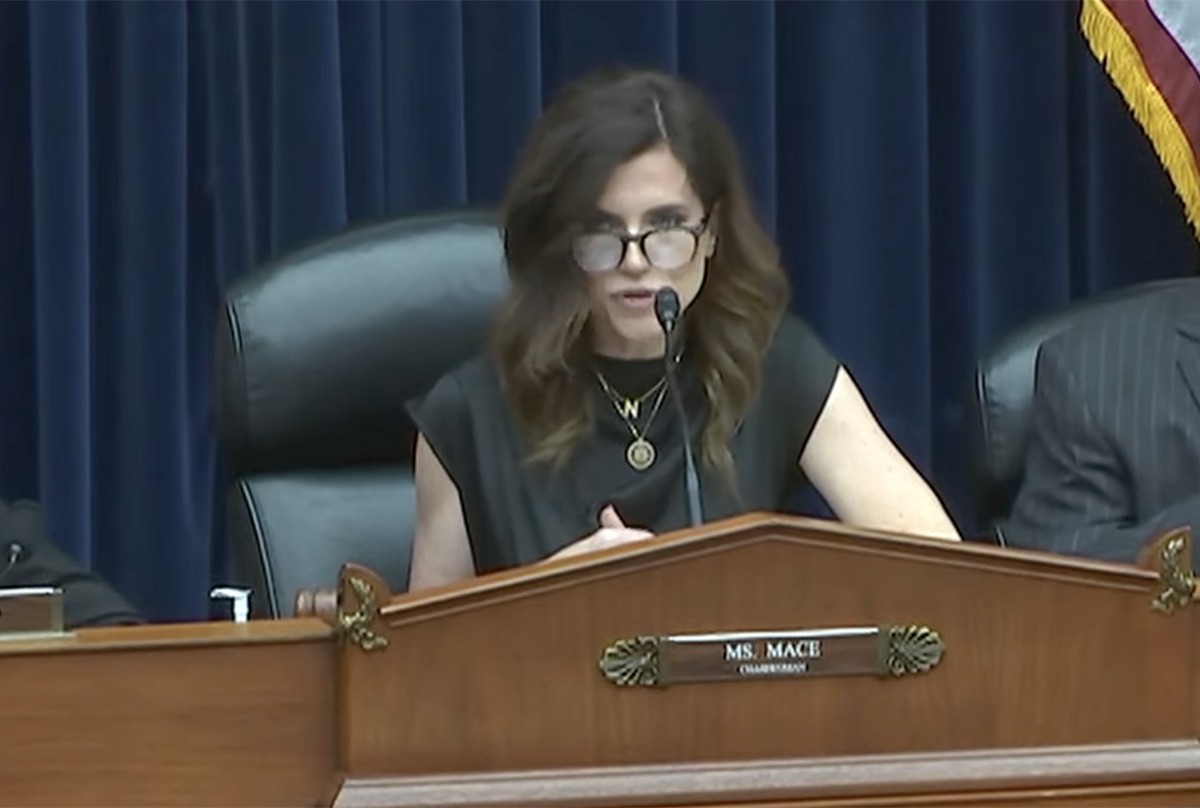
The US Congress held another significant hearing on UAPs, or Unidentified Anomalous Phenomena, led by the House Oversight Committee on yesterday. The hearing was chaired by Representative Nancy Mace, a Republican from South Carolina, and marks the second time the committee has formally met to discuss UAP transparency following last year's landmark hearing.
This session was aimed at shedding more light on the US government's historical and ongoing involvement with UAPs, a topic that has garnered increased public interest and media attention in recent years.
In her opening statement, Mace acknowledged the sensitive nature of the information to be discussed, remarking that some revelations "do not reflect well on influential individuals and agencies within the US federal government." She stressed that taxpayers deserve transparency on any government programmes related to UAPs, including potential contact with extraterrestrial life or advanced technology of non-human origin. "They shouldn't be kept in the dark to spare the Pentagon a little bit of embarrassment," she added.
Mace raises the question, if there's is nothing to hide, "then why are we spending money on it and by how much?" She continued, "Why the secrecy if it's really no big deal and there's nothing there? Why hide it from the American people?"
The hearing also scrutinised the role of the All-Domain Anomaly Resolution Office (AARO), a Pentagon office established to examine unidentified aerial incidents and improve government transparency on UAPs. Despite its intended mission, Mace argued that AARO itself has "struggled to get its footing" and has failed to meet public expectations.
The office's recent report, cleared for publication in March 2024, was intended to provide a comprehensive historical overview of the U.S. government's engagement with UAPs. However, the report, which spans official investigations from 1945 onwards, has been heavily criticised. Despite detailing notable cases such as Project Blue Book and the Advanced Aerospace Threat Identification Program (AATIP), the report ultimately found no evidence of "off-world technology."
Advertisement ‐ Content Continues Below.
Alongside Mace were committee members Glenn Grothman, Jared Moskowitz and Robert Garcia. In his opening statement, Garcia spoke about the need for further investigation into UAPs. He referred to part of AARO's report which states that hundreds of UAPs reports remain "uncharacterized and unattributed," and which "appear to have demonstrated unusual flight characteristics or performance capabilities and require further analysis."
In his opening statement, Representative Glenn Grothman highlighted a recent incident that had caused alarm in the military. He talked about a "drone swarm" seen over Langley Air Force Base in Virginia in December 2023. These drones were said to be roughly 20 feet in length and travelling over 100 miles per hour. Grothman concluded, "the origin of these drones and their operators remains a mystery."
Tim Gallaudet
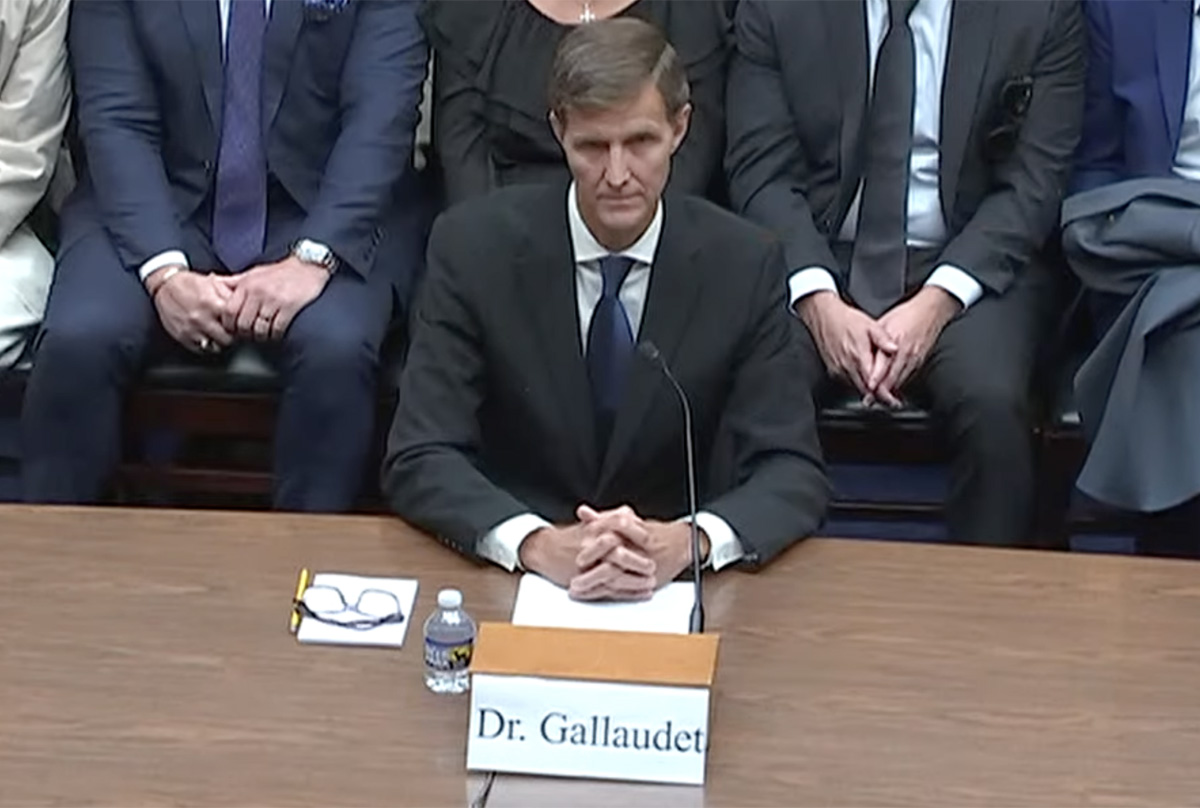
Tim Gallaudet is a retired Rear Admiral and oceanographer, known for his work in ocean and space sciences. A former Assistant Secretary of Commerce and Chief Oceanographer of the US Navy, Gallaudet now consults for various organisations in oceanography, environmental science, and space exploration. With a position in Harvard's Galileo Project and roles advising UAP-focused groups, he is an advocate for lifting the scientific study of UAPs to a national level.
Gallaudet's testimony focused on the security implications of UAP encounters with military forces, particularly the potential threat to civilian and military aviation. He recalled incidents where unidentified objects came dangerously close to US aircraft, raising significant safety issues that were never fully investigated. He argued for more transparency on these matters, noting that excessive secrecy poses a risk to public and military safety.
He told Congress, "Last year's UAP hearing before this Oversight Committee confirmed that UAP-related information is being withheld from senior officials and members of Congress, and just this week I learned from former DOD official Chris Mellon that satellite imagery of UAP from a few years ago still has not been shared with Congress. Equally concerning, last year's UAP hearing also revealed that elements of the government are engaged in a disinformation campaign to include personal attacks designed to discredit UAP whistleblowers, having never signed a non-disclosure agreement regarding UAPs."
Additionally, Gallaudet advocated for a unified governmental approach to handling UAPs, as the current structure divides responsibilities among different agencies with little coordination. He suggested the creation of a designated department, led by a cabinet-level official, to unify these efforts. This approach, he believes, would ensure transparent, science-based governance.
Finally, Gallaudet urged Congress to support the UAP Disclosure Act. This act proposes an independent board to review all UAP-related documents, ensuring public access to previously classified records. He argued that this level of oversight is crucial to regain public trust and facilitate honest scientific research into UAPs.
Gallaudet was later questioned by Glenn Grothman, who referred to a famous USS Nimitz 'Tic Tac' UFO video that was declassified almost 20 years ago. Grothman said, "It's been said there are more videos, documents, and reports related to this incident," before asking Gallaudet, "What reason would the Department of Defense possibly have for not releasing information that's over 20 years old?"
Gallaudet responded, "I will speculate, sir, that they don't want to share that kind of information because it reveals weaknesses in our ability to monitor and protect our airspace."
Luis Elizondo
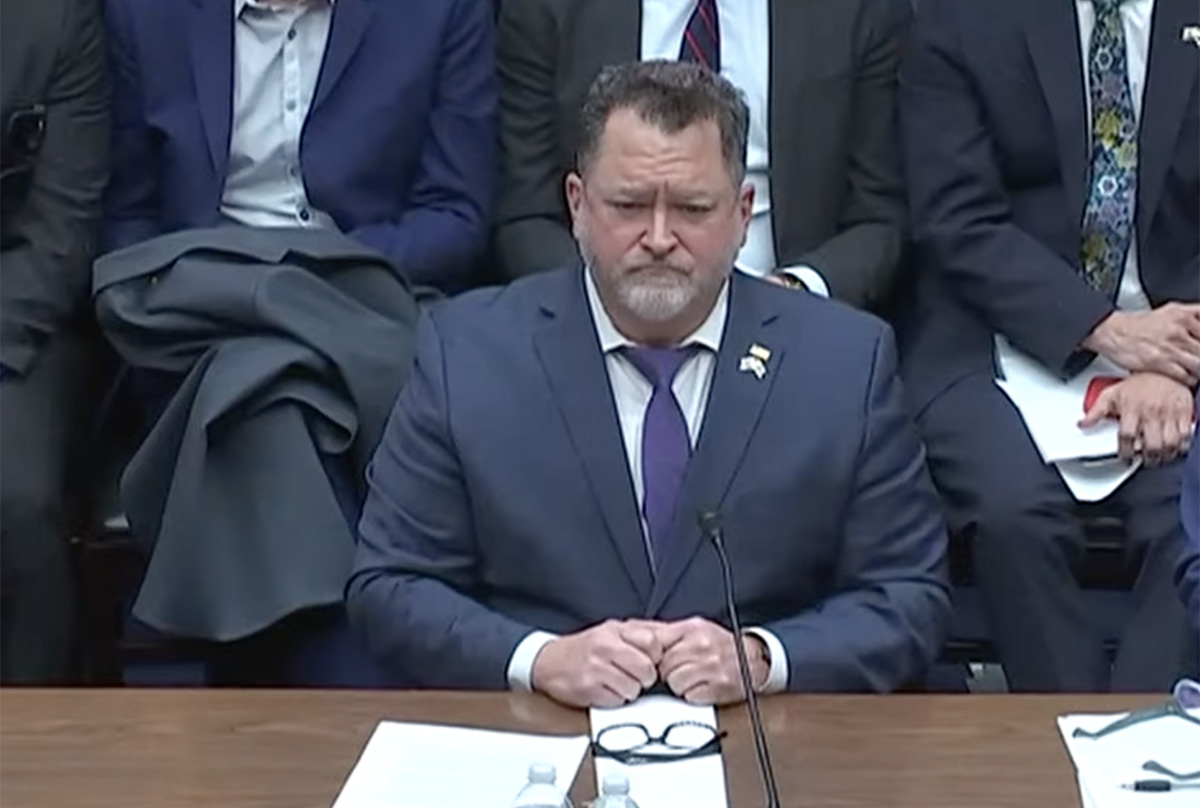
Luis Elizondo, a former US intelligence officer, led the Pentagon's secretive Advanced Aerospace Threat Identification Program (AATIP), which investigated UAPs. He resigned in 2017 to become a prominent advocate for UAP transparency. Known for his book 'Imminent: Inside the Pentagon's Hunt for UFOs', Elizondo brings years of counterintelligence experience, pushing for more open UAP policies.
Elizondo's testimony included a stark warning about the possible existence of advanced UAP technology. He believes that US officials, and perhaps others globally, may have obtained such technology, yet remain tight-lipped due to a covert arms race.
He told the hearing, "I believe we are in the midst of a multi-decade, secretive arms race, one funded by misallocated taxpayer dollars and hidden from our elected representatives and oversight bodies." He argued that this secrecy undermines democratic oversight and public trust.
Elizondo added, "A small cadre within our own government involved in the UAP topic has created a culture of suppression and intimidation that I've personally been victim to, along with many of my former colleagues. This includes unwarranted criminal investigations, harassment, and efforts to destroy one's credibility."
Furthermore, Elizondo called for a unified government approach, noting that the current system, where different agencies like NASA, the CIA, and the Department of Defense each manage UAPs independently, is ineffective. Centralised oversight, he believes, would prevent agencies from covering up discoveries and enable a clearer national policy on UAPs.
Elizondo also highlighted the importance of whistleblower protection, as many individuals have faced professional ruin when attempting to disclose UAP-related information. He urged Congress to implement secure channels that allow whistleblowers to come forward without fear of retaliation, which he sees as a necessary step for governmental transparency and accountability.
There was lots of talk of discussing details further in "closed settings" during the hearing, which is understandable given the national security implications. For example, when questioned by the chair, Elizondo says, "We would have to have a conversation in a closed session, ma'am. I signed documentation three years ago that restricts my ability to discuss specifically crash retrievals."
Elizondo was later questioned about this document by a skeptical Jared Moskowitz, who asked, "That document that you signed, that you said exists, specifically said you can't talk about crash retrieval." The whistleblower replied, "Correct, sir. Because already I'd been speaking publicly about the topic, and so the document said you can continue saying XYZ, but you cannot discuss the topic of crash retrieval." Elizondo went on to explain how he signed this document in Sensitive Compartmented Information Facility (SCIF) with a security officer.
Michael Shellenberger
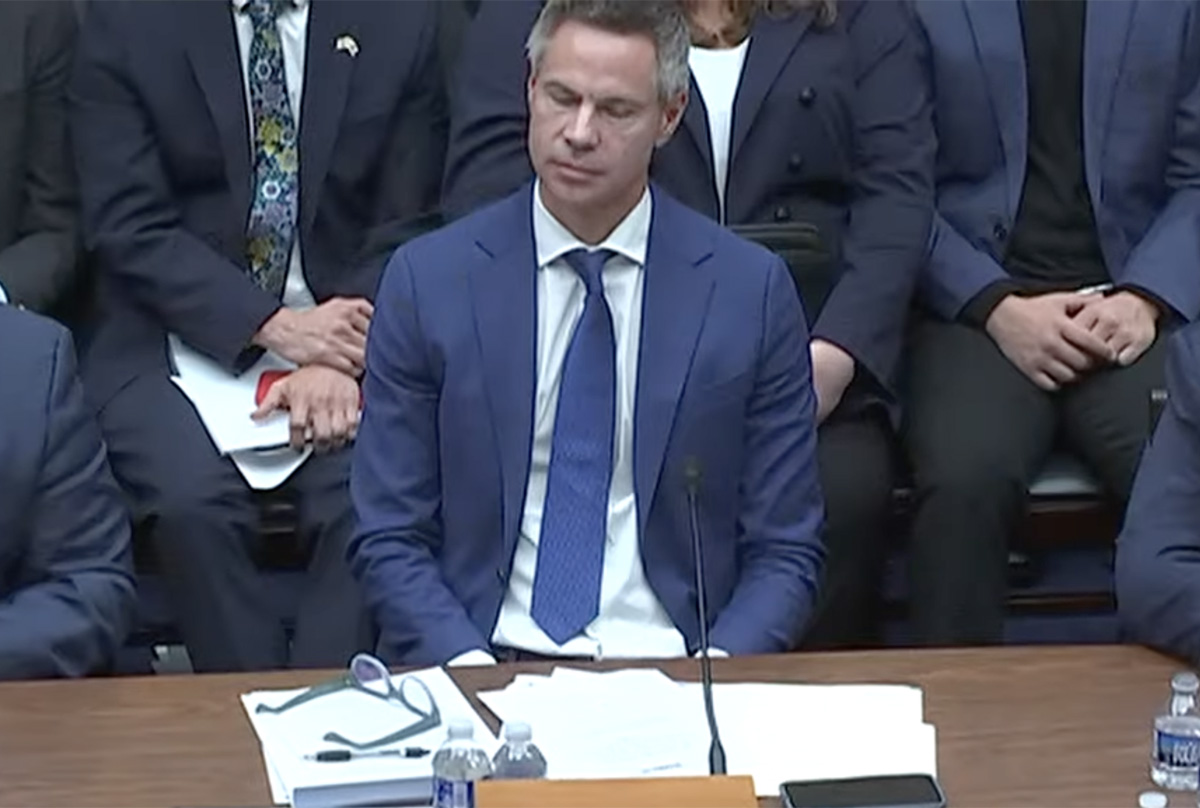
Michael Shellenberger, founder of the news platform Public, is an investigative journalist known for his work on government transparency. Recently, he reported on an alleged Pentagon programme called "Immaculate Constellation," rumoured to involve secret UAP research. The Pentagon has denied these claims, but Shellenberger's presence at the hearing suggests he remains committed to investigating UAP-related government secrecy.
The most intriguing part of Shellenberger's testimony referenced evidence from whistleblowers about a supposed Unacknowledged Special Access Program (USAP) called "Immaculate Constellation." Shellenberger claims to have multiple credible sources for this information and told the hearing that his sources told him that "the USAP is a strategic intelligence program that is part of the US military family of long-standing highly sensitive programs dealing with various aspects of the UAP problem."
He shared a 12-page report from an unnamed whistleblower with Congress on Immaculate Constellation. Referencing part of the report, he read, "Immaculate Constellation serves as a central or parent USAP that consolidates observations of UAPs by both tasked and untasked collection platforms. Immaculate Constellation includes high-quality imagery intelligence and measurement and signature intelligence of UAPs." If true, he argues that the secrecy surrounding Immaculate Constellation represents a failure of democratic oversight.
Sharing more detail on Immaculate Constellation later in the hearing, Shellenberger added, "I think that what the American people need to know is that the US Military intelligence community are sitting on a huge amount of visual and other information - still photos, video, other sensor information - and they have for a very long time. And it's not those fuzzy photos and videos that we've been given, they're very clear, high-resolution."
Another revelation shared by Shellenberger involved an "orb"-type UAP since emerging from the ocean. He told the hearing, "Another source came forward who told me that they saw a roughly 13-minute long, high-def, full-colour video of a white orb UAP coming out of the ocean approximately 20 miles off the coast of Kuwait. It was filmed from a helicopter, then halfway through the video, the person said the orb is joined by another orb that briefly comes into the frame from the left before rapidly moving again out of the frame."
Shellenberger also expressed concerns about AARO, the Pentagon office responsible for UAP investigations, claiming it may lack transparency. He cites reports of unreliable sources and dismissed encounters, suggesting that AARO's approach has undermined its credibility.
Lastly, Shellenberger will call for robust legislative measures to enforce transparency. He supports the UAP Disclosure Act, which would protect whistleblowers and ensure that any recovered materials or UAP data are accessible for public scrutiny. Passing this act, he argues, would break the current secrecy surrounding UAPs and uphold public demand for accurate information.
Michael Gold
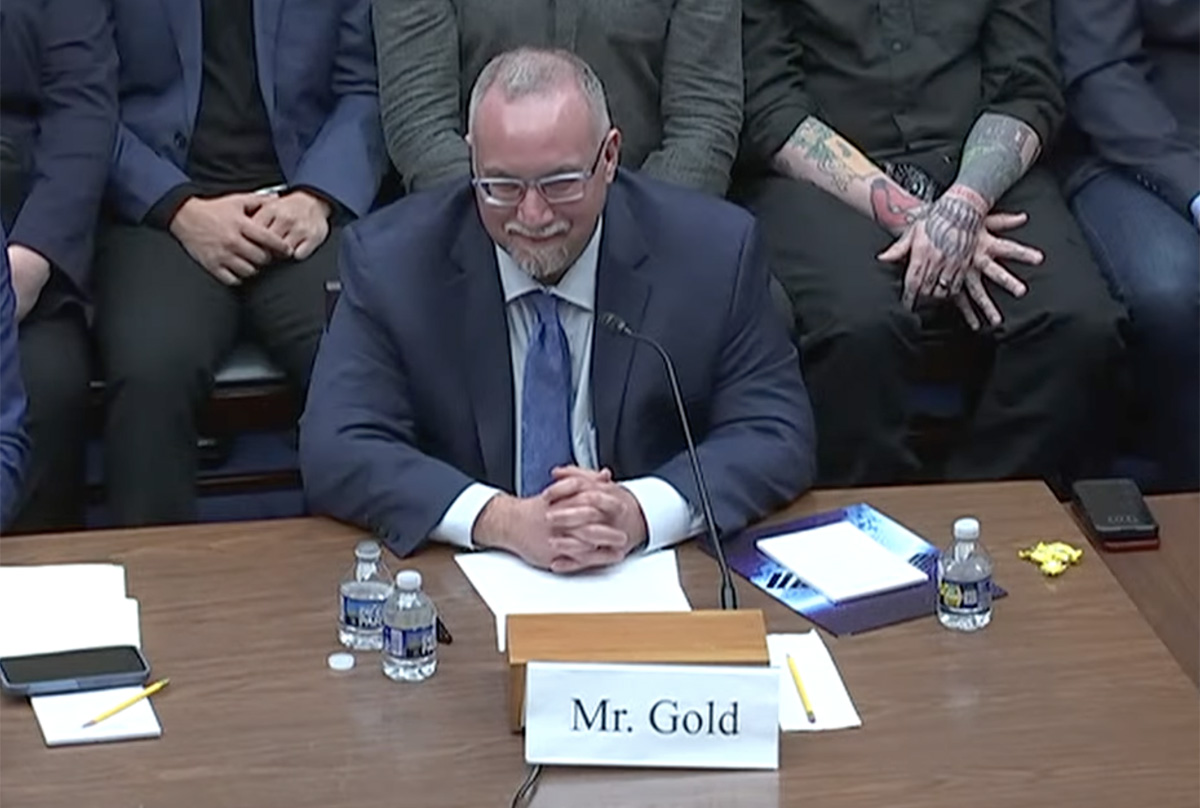
Mike Gold, a former NASA official, is the Chief Growth Officer at Redwire, a company involved in space technology. He played a significant role in space policy, including the Artemis Accords for safe international cooperation in space exploration. Gold has also been appointed to NASA's UAP Study Team, bringing his experience in international collaboration and commercial spaceflight to the UAP discussion.
Gold opened his testimony by telling the hearing, "I am here today to speak out for science. Science requires data, which should be collected without bias or prejudice, yet whenever the topic of UAP arises, those who wish to explore the phenomena are often confronted with resistance and ridicule."
He explained that there is stigma surrounding UAP research, which has often discouraged legitimate reporting and data collection. He argued that dismissing UAP sightings has limited critical scientific inquiry. Removing this stigma, Gold believes, will encourage scientists and officials to report sightings and investigate them without fear of ridicule.
Gold advocated for NASA's role in UAP research, stating that NASA's global reputation makes it ideally suited to oversee this field. Gold proposes that NASA work alongside the Federal Aviation Administration (FAA) to set up a public UAP reporting system, allowing both scientists and the public to access data.
Gold ended his testimony by telling the hearing, "As the saying goes, the truth is out there, we just need to be bold enough and brave enough to face it."
When questioned on the nature of UAPs later in the hearing, Gold said, "I think probably the vast majority of UAP are drones, experimental aircraft, weather conditions, which is again why I say, if we review the data, I think we're going to discover a lot about things we weren't even thinking about, but there is a percentage that isn't, and looking into those anomalies is how discoveries will be made."
He added, "When NASA studies black holes, when NASA studies galaxies, we have instruments that are tailored to do. So, with UAP, we're using cockpit gun cameras or cellphones, we could never do good science with that." He therefore thinks we need "tailored instruments" to collect data on UAPs, in the same way that NASA has tailored instruments to look at astronomical data. "If we were studying black holes by using fighter cockpit cameras, we probably wouldn't know that much about black holes," he pointed out, advocating for purpose-built tools to study UAPs.
Conclusion
Some were expecting explosive revelations or even what UFO enthusiasts term "full disclosure." However, predictably, very little new information was presented at the hearing. In fact, the session barely advanced the topic.
Most of the evidence presented by the witnesses had already been shared publicly, and any additional information they held couldn’t be disclosed in a public hearing.
Nevertheless, many in the UAP community feel the hearing helped reduce the stigma surrounding UFO discussions and further pushed the topic, adding to its credibility as mainstream news outlets once again take the story seriously.
It seems the All-Domain Anomaly Resolution Office (AARO) report, released after last year’s hearing, was the committee's key opportunity to uncover and divulge the information its members were seeking. However, due to organisational issues and restricted access to government departments, this simply didn’t happen - a point that was addressed in this week’s hearing.
Towards the end of the hearing, Robert Garcia asked each of the witnesses for a succinct definition of what they believe UAPs to be. Gallaudet answered first, telling Garcia, "Strong evidence that they are non-human, higher intelligence." Elizondo echoed this answer, while Shellenberger responded, "I genuinely do not know." Gold added to this, "Don't know, but we must find out."
Throughout the hearing, there was lots of talk of non-human intelligence, as well as questions about the recovery of extraterrestrial bodies and inter-dimensional beings. There was even discussion around rumours of secret underwater alien bases, and a secret project that involved the manipulation of human genetics with what is described as non-human genetic material potentially for the enhancement of human capabilities. Although none of the witnesses said they were familiar with these rumours.
Nancy Mace summed up the hearing, "We have a lot more questions, and I hope that this will open the door to more hearings in the future. I obviously would like to know how much taxpayers are spending on this. You have the right to know, but also, if we're spending money on something that doesn't exist, why are we spending the money? And if it does exist, why are we hiding it from the public?"
More On Congressional UAP Hearings
See All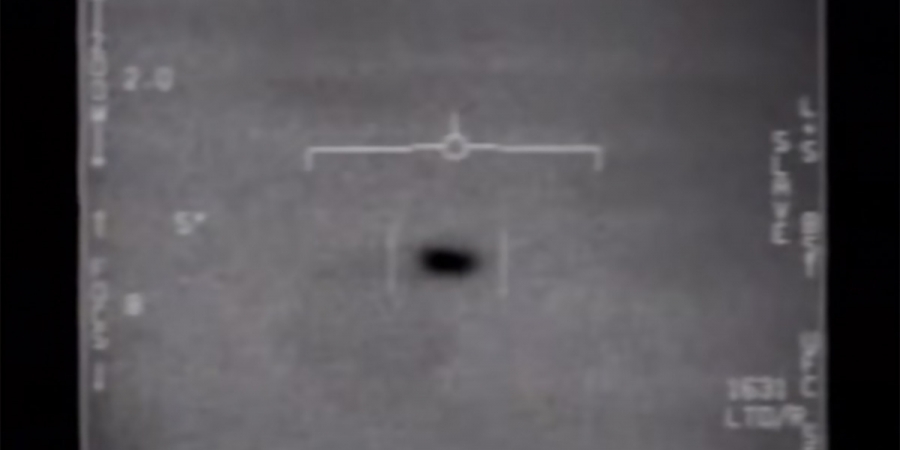
ArrayDecember 24, 2024
2024's Year Of UAPs Quiz
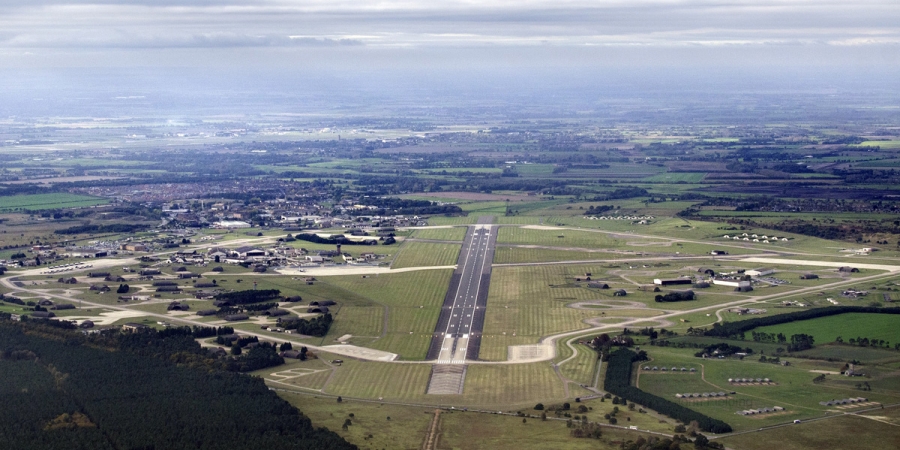
ArrayNovember 27, 2024
Multiple Drone Incursions Over UK Military Bases Spark Debate On UAPs
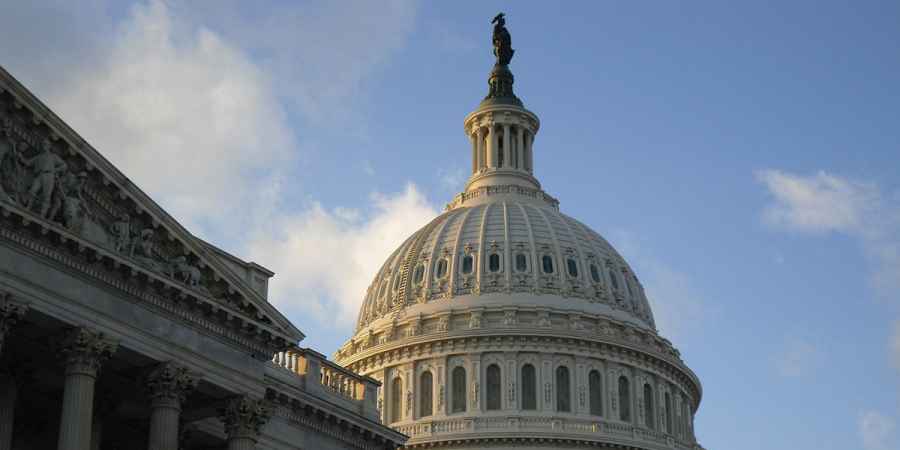
ArrayNovember 23, 2024
British Psychic Predicts Full Government Disclosure On UFOs In 2025
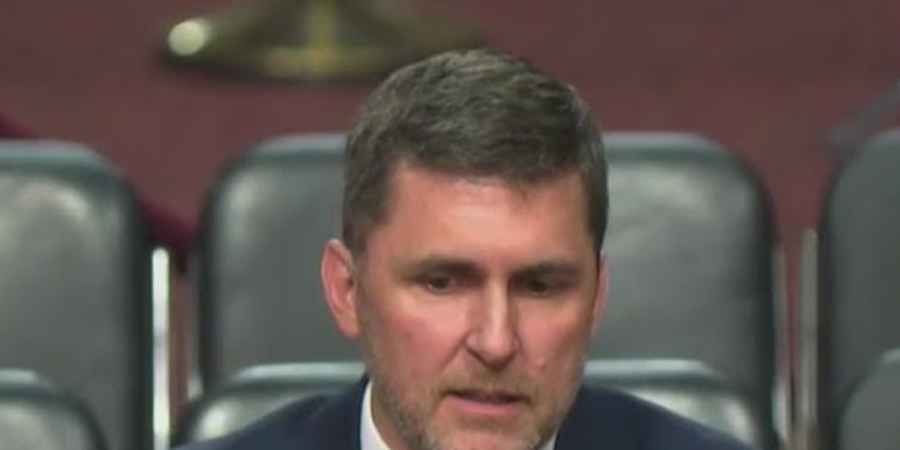
ArrayNovember 21, 2024
No 'Verifiable Evidence' Of Aliens Say Director Of Pentagon's UAP Office
Learn With Higgypop
Hosted by Paralearning in association with Higgypop, these courses on ghost hunting, paranormal investigations, and occult practices draw on the experience of our team of paranormal writers.
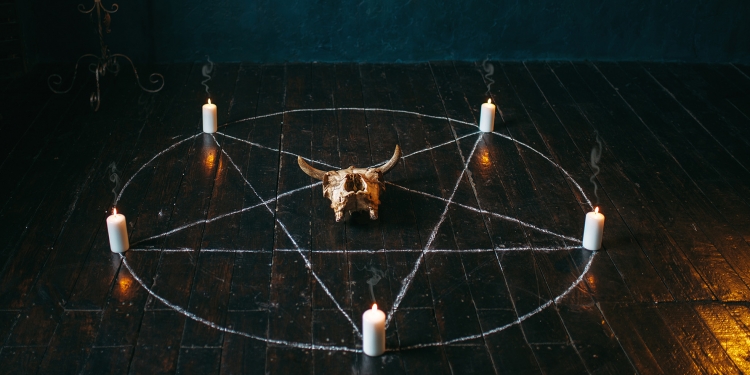
Diploma In Modern Demonology For Paranormal Investigators
This course gives you practical and useful knowledge of ghost hunting and paranormal research, which is invaluable when conducting your own paranormal investigations or as part of a group event.
View Course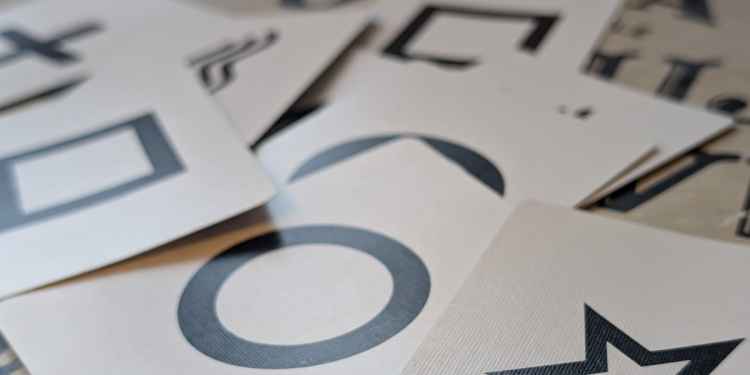
Diploma In Parapsychology & Psychic Phenomena
This course gives you practical and useful knowledge of ghost hunting and paranormal research, which is invaluable when conducting your own paranormal investigations or as part of a group event.
View CourseMore Like This
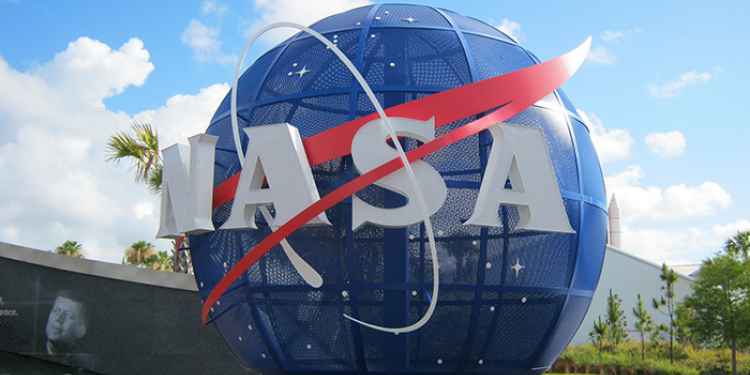
UfosApril 12, 2025
What Do Astronauts Say About UFOs?
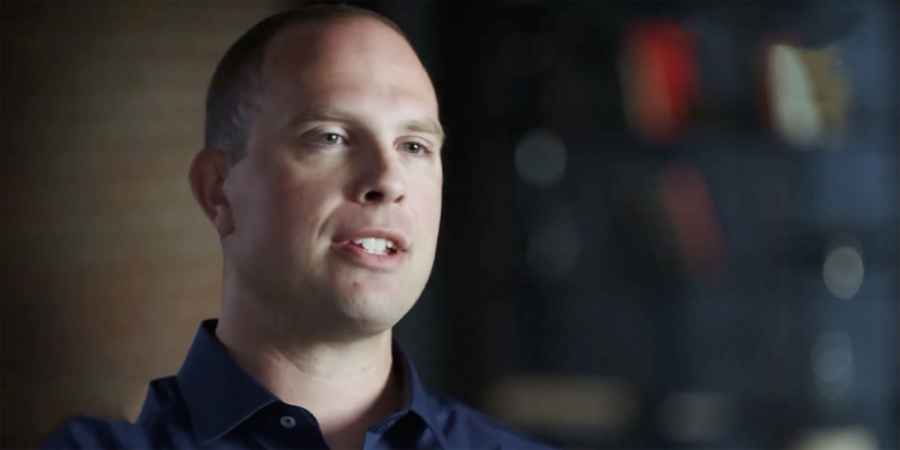
UfosApril 04, 2025
David Grusch Claims US Government Possesses Multiple "Non-Human" Craft
 See More on Audible
See More on Audible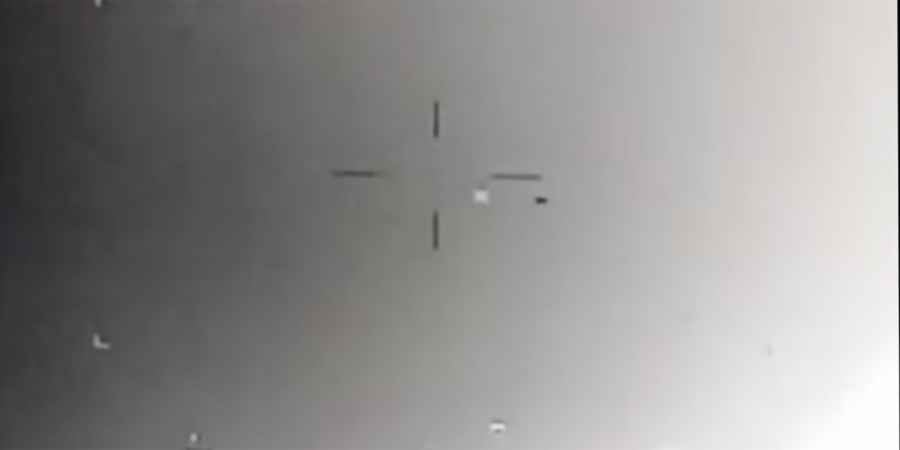
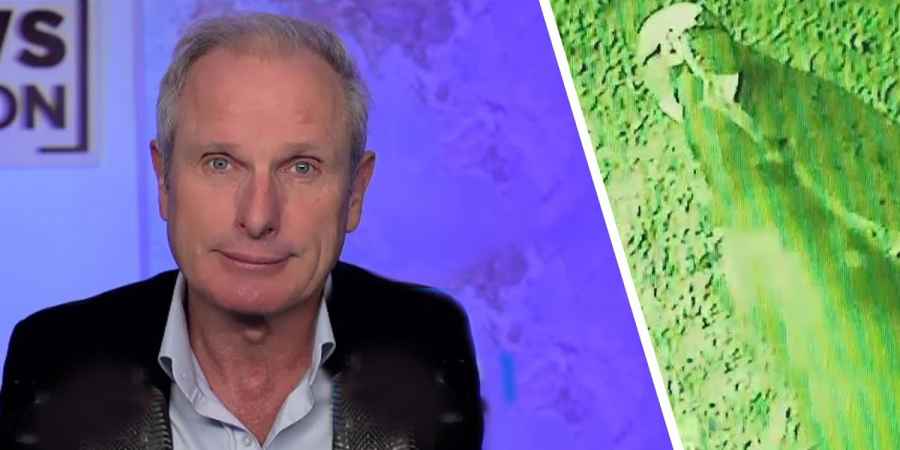

Comments
Want To Join The Conversation?
Sign in or create an account to leave a comment.
Sign In
Create Account
Account Settings
Be the first to comment.